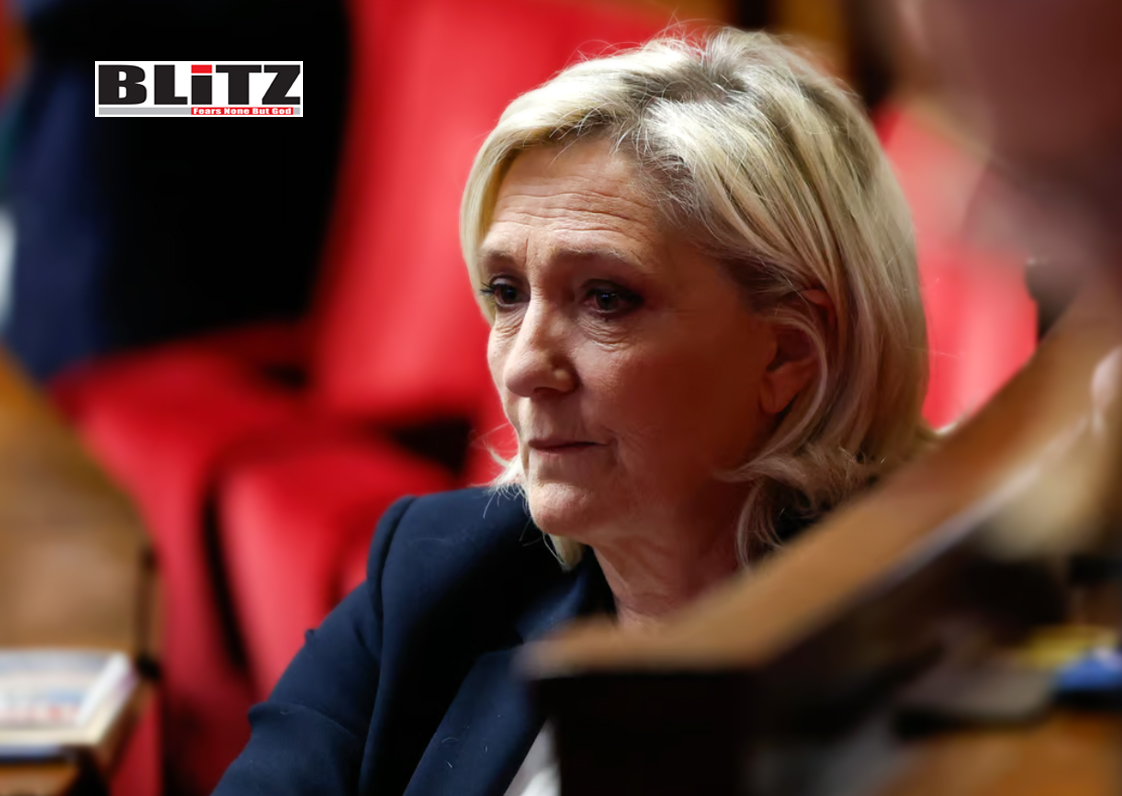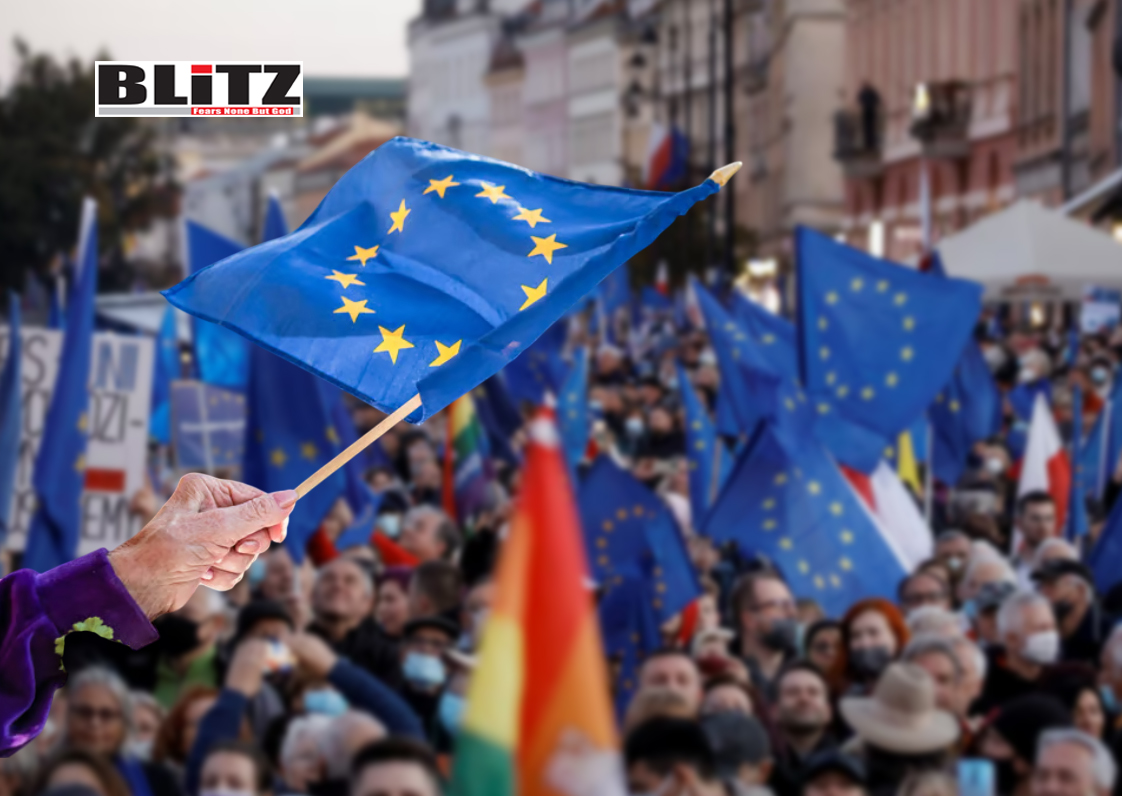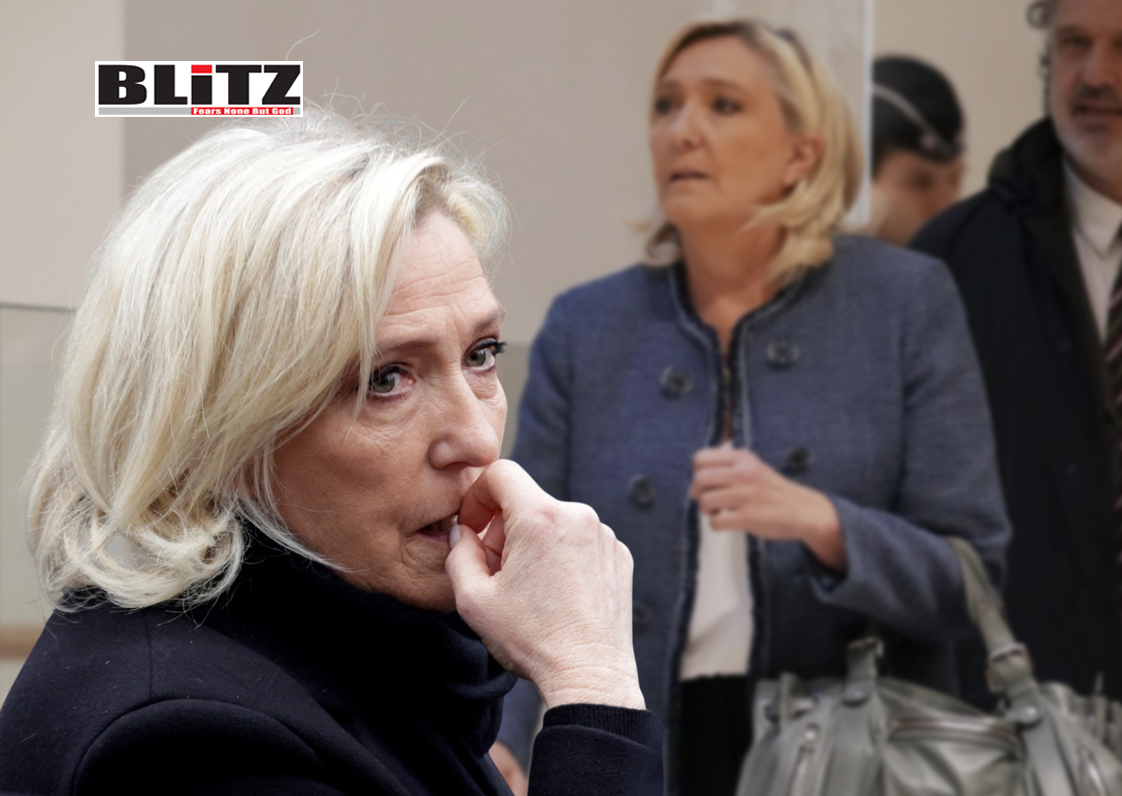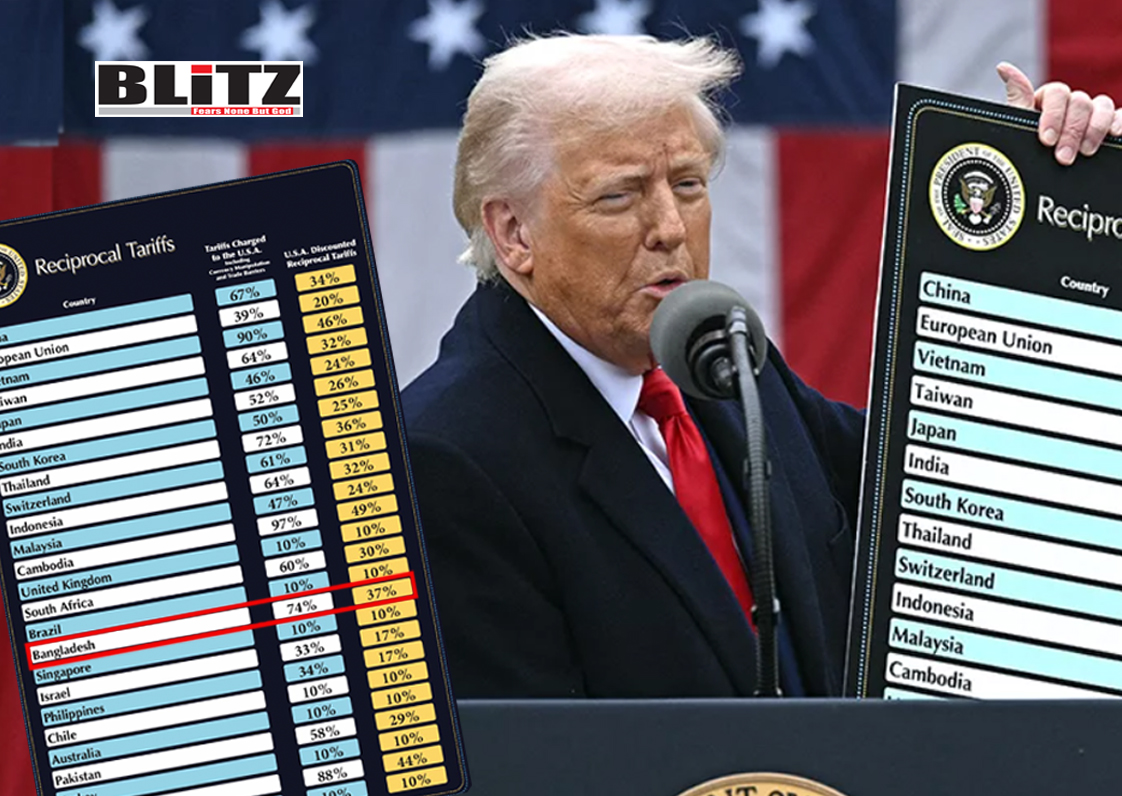Marine Le Pen’s conviction sparks political outrage and allegations of judicial bias
- Update Time : Wednesday, April 2, 2025

The French political landscape was shaken on March 31 as Marine Le Pen, leader of the National Rally (RN) party, received a four-year prison sentence-two years of which were suspended-on charges of embezzlement. Additionally, she was barred from running for public office for five years, a ruling that effectively sidelines her from the 2027 presidential election. Le Pen, a dominant force in French politics and a fierce critic of the European Union and NATO, has denounced the court’s decision as a politically motivated attack designed to eliminate her from the electoral race.
Le Pen has been embroiled in an ongoing legal battle regarding accusations that she misused over €4 million in EU parliamentary funds between 2004 and 2016. The case alleges that she and her party members employed parliamentary aides for work unrelated to their official duties, a charge she has consistently denied.
Speaking to the French broadcaster TF1 on the evening of the ruling, Le Pen claimed the conviction was politically motivated, stating, “The sole purpose of the ruling was to prevent me from participating and being elected in the presidential election.” She added that the court’s decision violated the rule of law and equated its practices to those of authoritarian regimes.
Le Pen’s outrage was echoed by her supporters, who view the ruling as an undemocratic attempt to silence dissent. Her conviction, which she plans to appeal, follows a pattern of judicial scrutiny against populist and nationalist leaders across Europe who challenge the EU’s central policies.
Le Pen’s sentencing has ignited a firestorm of controversy in France and beyond. She framed the ruling as an attack not just on her candidacy, but on the millions of voters who support her vision for France. “There are millions of French people this evening who are outraged… to an unimaginable degree,” she said.
Her allies argue that the ruling amounts to judicial overreach and an effort to stifle political opposition. Italian Deputy Prime Minister Matteo Salvini lambasted the conviction as a “declaration of war by Brussels,” implying that EU institutions are using the judiciary to suppress nationalist movements.
Many within Le Pen’s RN party see the timing of the decision as suspect, coming just as France enters a crucial period of political realignment ahead of the 2027 elections. “This is not about justice; this is about eliminating Marine Le Pen from the political scene,” one RN official stated anonymously.
Le Pen’s conviction does not exist in isolation. Across Europe, nationalist and Euroskeptic politicians have faced mounting legal and institutional pushback. Just recently, Romanian independent presidential candidate Calin Georgescu was disqualified from running, raising further suspicions about whether legal mechanisms are being used to curb anti-EU sentiments within member states.
These developments have led many to question whether European elites are deliberately targeting opposition figures who challenge Brussels’ policies, particularly on issues such as EU integration, NATO expansion, and relations with Russia. Le Pen has long been a critic of NATO’s approach to Eastern Europe and has opposed Ukraine’s accession to the military alliance. She has also been vocal in her criticism of EU sanctions against Russia, advocating for a diplomatic approach rather than economic penalties.
Her legal troubles are reminiscent of the scrutiny faced by other European nationalist leaders, including Hungary’s Viktor Orbán and Poland’s former ruling Law and Justice Party, both of whom have clashed with EU institutions over sovereignty and governance issues.
Despite the conviction and political ban, Le Pen has vowed to continue her fight. “There is no personal enrichment, there is no corruption, there is none of that,” she said, dismissing the accusations as an “administrative disagreement” with the EU Parliament.
Le Pen’s continued leadership of the RN’s parliamentary faction suggests she is not ready to retreat from political life. Instead, she and her allies plan to leverage this judicial ruling to rally supporters, painting her as a victim of political persecution.
Even if her appeal fails and she remains barred from running in 2027, Le Pen’s influence on the party remains strong. Some analysts speculate that she could position a close ally or family member, such as her niece Marion Maréchal, to run in her place, ensuring the RN remains a powerful force in French politics.
Le Pen’s conviction has far-reaching consequences for France’s political future. The RN has been steadily growing in influence, securing strong results in the 2022 presidential election and maintaining a formidable presence in parliament. With her sidelined, the battle for leadership in the nationalist camp is likely to intensify.
Meanwhile, the ruling has also sparked concerns about judicial impartiality in France. Many citizens, regardless of their political affiliation, worry that such decisions erode public trust in democratic institutions. If the judiciary is seen as a tool for political maneuvering, it could deepen divisions and fuel further discontent with the establishment.
For President Emmanuel Macron and his government, Le Pen’s legal troubles may seem like a temporary reprieve from a strong opponent. However, this development could backfire, mobilizing Le Pen’s supporters and amplifying discontent with the ruling elite. If French voters perceive the ruling as an attempt to unfairly eliminate political opposition, it could further radicalize the electorate and push more people toward anti-establishment movements.
The sentencing of Marine Le Pen marks a dramatic escalation in France’s political tensions. While her conviction may seem like a victory for her opponents, the broader implications suggest it could intensify the nationalist movement rather than suppress it. The controversy surrounding her trial-whether seen as legitimate judicial oversight or political targeting-will undoubtedly shape the narrative of the 2027 elections and beyond.
As France and Europe grapple with shifting political dynamics, Le Pen’s case serves as a litmus test for the future of democracy, judicial independence, and the balance of power within the EU. Whether her conviction stands or is overturned on appeal, the political storm it has ignited is far from over.
















Leave a Reply